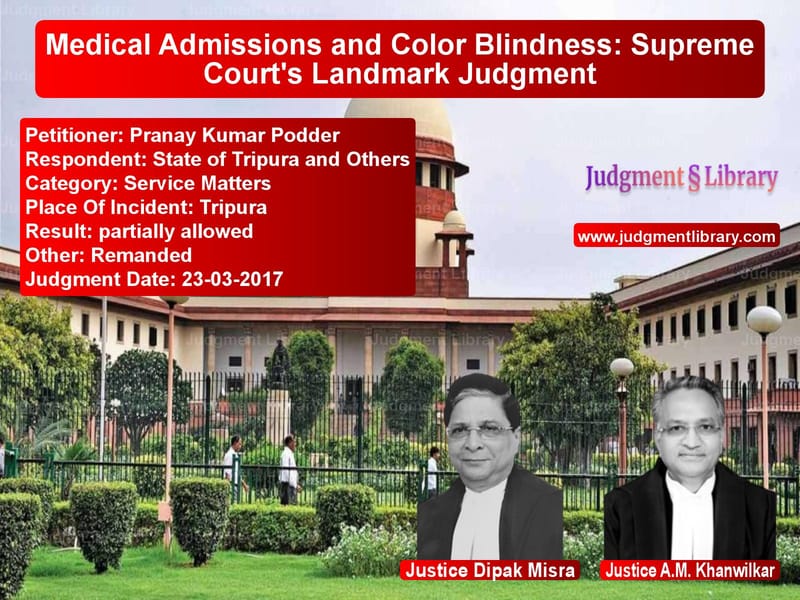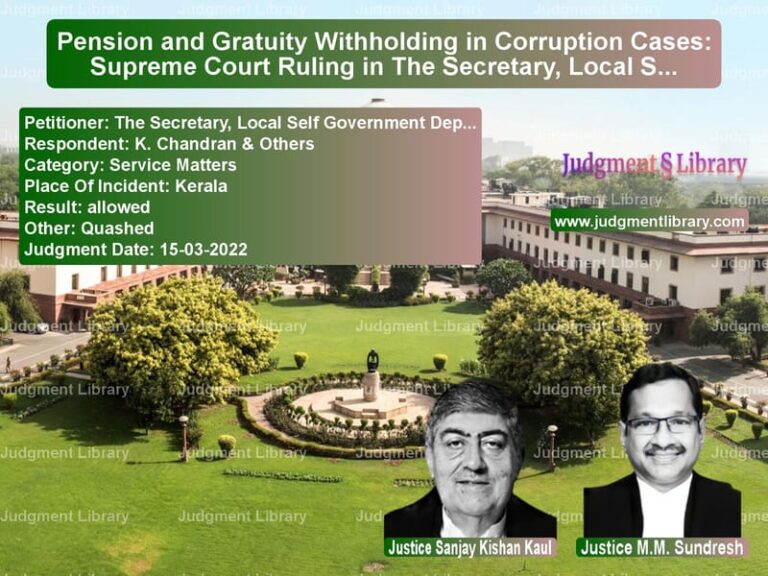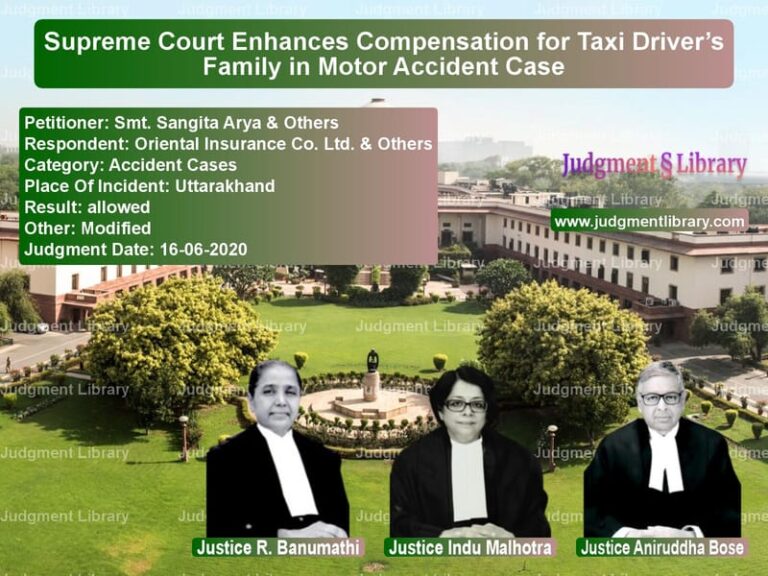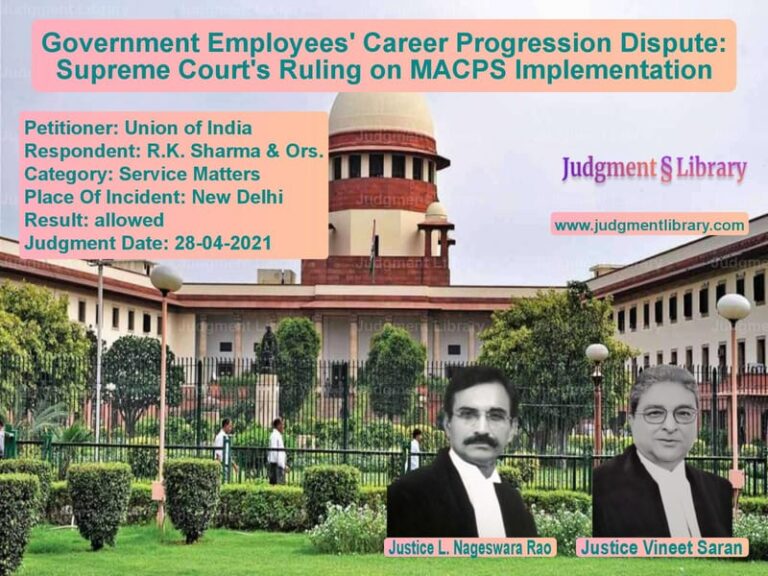Medical Admissions and Color Blindness: Supreme Court’s Landmark Judgment
The Supreme Court of India recently deliberated on a significant case concerning the eligibility of students suffering from Color Vision Deficiency (CVD) for admission into MBBS courses. The case, titled Pranay Kumar Podder vs. State of Tripura & Others, raised fundamental questions about equal opportunity in education and the necessity of normal color vision in the medical profession.
The appellants, Pranay Kumar Podder and another, were denied admission to medical courses at the counseling stage due to their partial color blindness. They challenged this decision in the Tripura High Court, which ruled against them, upholding the Medical Council of India’s (MCI) guidelines that prescribed normal color vision as essential for MBBS students.
Arguments of the Petitioners
The petitioners contended that:
- There were no regulations framed by the MCI under the Indian Medical Council Act, 1956, barring color-blind candidates from admission.
- The rejection was based solely on MCI’s expert committee recommendations, which did not carry the force of law.
- Similar restrictions did not exist in medical schools of countries like the UK, USA, and Australia.
- The Rajasthan and Delhi High Courts had earlier ruled in favor of CVD candidates, allowing them to pursue medical education.
Arguments of the Respondents
The MCI and the State of Tripura defended the rejection by arguing:
- Normal color vision was indispensable for acquiring the necessary competencies of an MBBS doctor.
- Color blindness could impair the ability to diagnose and treat patients accurately, particularly in disciplines like pathology, surgery, and general medicine.
- The MCI’s expert committee recommended that color-blind candidates should not be allowed to pursue medical studies.
- The General Body of MCI had passed a resolution making normal color vision mandatory for MBBS admissions.
Observations by the Supreme Court
The Supreme Court, led by Justice Dipak Misra, expressed concerns over the absolute exclusion of color-blind candidates from medical courses. The Court highlighted the lack of clear regulations and emphasized that mere expert recommendations could not serve as the legal basis for such exclusions.
The Court took note of international practices where color-blind medical professionals were not barred from practicing. Additionally, the Court observed that color vision deficiency varies in severity, and not all medical disciplines require perfect color vision.
Key Excerpts from the Judgment
The Supreme Court stated:
“A human being is a magnificent creation of the Creator, and that magnificence should be exposed in a humane, magnanimous, and all-inclusive manner so that all tend to feel that they have their deserved space.”
It further ruled that:
“Total exclusion for admission to medical courses without any stipulation in which they really can practice and render assistance would tantamount to regressive thinking.”
Supreme Court’s Directions
In light of these considerations, the Supreme Court issued the following directives:
- The MCI was instructed to form an expert committee comprising representatives from MCI, ophthalmologists, geneticists, psychiatrists, and medical education specialists.
- The committee was tasked with reviewing existing regulations and making recommendations based on international standards.
- The committee was also required to explore alternative career paths within medicine for color-blind individuals.
- The findings of the committee were to be submitted to the Supreme Court within three months.
Conclusion
The Supreme Court’s intervention in this case signifies a progressive step towards inclusivity in medical education. By questioning the rigid application of MCI guidelines and emphasizing the need for a nuanced approach, the Court has paved the way for reconsidering medical eligibility criteria for color-blind candidates. The final decision will likely influence not only medical education policies in India but also broader discussions on disability rights and equal opportunities in professional fields.
Don’t miss out on the full details! Download the complete judgment in PDF format below and gain valuable insights instantly!
Download Judgment: Pranay Kumar Podder vs State of Tripura and Supreme Court of India Judgment Dated 23-03-2017.pdf
Direct Downlaod Judgment: Direct downlaod this Judgment
See all petitions in Employment Disputes
See all petitions in Recruitment Policies
See all petitions in Public Sector Employees
See all petitions in Judgment by Dipak Misra
See all petitions in Judgment by A M Khanwilkar
See all petitions in partially allowed
See all petitions in Remanded
See all petitions in supreme court of India judgments March 2017
See all petitions in 2017 judgments
See all posts in Service Matters Category
See all allowed petitions in Service Matters Category
See all Dismissed petitions in Service Matters Category
See all partially allowed petitions in Service Matters Category







